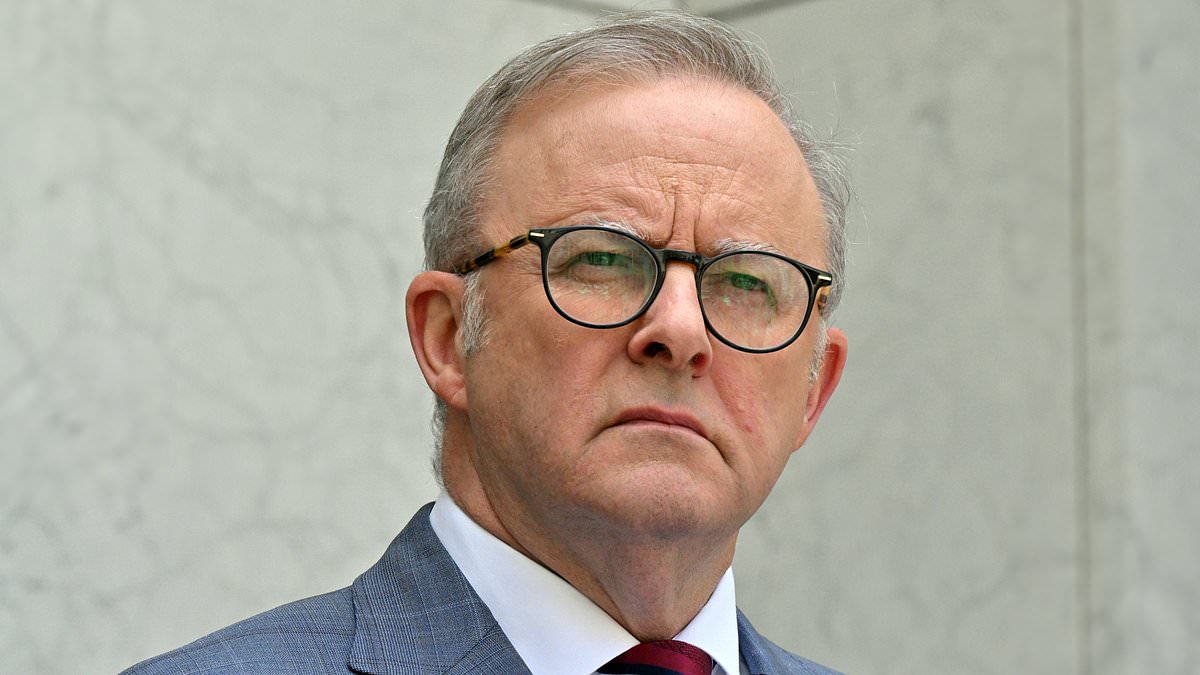Peter Dutton is poised to spring a major historical upset at the next federal election, a surprising new poll has revealed.
Seat-by-seat analysis of the latest polling shows Anthony Albanese’s government has currently has ‘near zero’ chance of retaining its majority in the House of Representatives with the Coalition set to snatch at least nine seats away at next year’s federal election.
If Mr Albanese loses government after one term in office, it will be the first time this has happened since 1932 when James Scullin led Labor to a shattering defeat during the economic misery of the Great Depression.
The shock prediction comes after almost 5000 voters were surveyed by Accent Research and the RedBridge Group, which then modelled what the federal parliament make-up will likely to look like after the next election.
The polling reported by the Daily Telegraph shows that NSW will be a crucial election battleground, with five seats likely to change hands and another seven teetering in the same direction.
Those seats stretch from Port Stephens and the NSW Hunter through to Sydney, the Blue Mountains and right down to the south coast.
In Victoria, the polling shows the Coalition will likely to claim at least one seat from Labor with another too close to call and it also eyeing claiming at least one seat in other states and territories.
RedBridge found the Coalition’s strategy of targeting outer suburban and provincial seats hit hard by cost of living increases is paying dividends.
These areas were showing five per cent vote swing away from Labor compared to three per cent in middle suburbia and one per cent in the inner cities.
On current voting intentions, there’s an 82 per cent probability the Coalition would have the most seats in the lower house, winning between 64-78 seats, compared with 59-71 for Labor,, according to Accent Research principal Dr Shaun Ratcliff.
The Greens and crossbenchers were likely to win 13 seats while 14 other electorates were too close to call.
Parties need to win 76 Lower House seats to form government.
‘We estimate there is a 98 per cent chance of a minority government, and slightly less than a two per cent chance of a Coalition majority,’ Dr Ratfliff told the publication.
‘The probability of a Labor majority is now approaching zero.’
He suggested that things could change rapidly and historically governments have recovered from worse positions to regain office.
However, Dr Ratfliff believed that the Albanese government would have to prove to voters that Labor had solutions to the issues causing public disillusionment.
RedBridge Director Kos Samaras said the ‘inflationary crisis’ was proving a ‘wrecking ball’ to Labor’s re-election chances.
‘Seats once considered relatively safe are now on a knife’s edge, as voters who historically backed Labor have moved from merely contemplating a change to fully aligning with the Coalition,’ Mr Samaras said.
His colleague Tony Barry said a particular danger period for Labor was when Christmas credit card debt landed for voters in the new year.
This was likely to prompt dissatisfaction with the present government.
The seats the Coalition are set to snatch from Labor are Macarthur, Robertson, Bennelong, Paterson and Gilmore in NSW and Aston in Victoria, Lingiari in the NT, Lyons in Tasmania and the new seat of Bullwinkel in WA.
Seats too close to call are Shortland, Werriwa, Macquarie, Dobell, Reid, Hunter and Mackellar in NSW, Corangamite, Chisholm, Hawke, Casey, McEwen in Victoria, Sturt in South and Curtin in WA.
Presently the Coalition is set to comfortably win 42 seats and is ahead in another 22.
Labor is likely to win 47 seats comfortably but is ahead in only another 12.
The federal election must be held on or before May 17.
